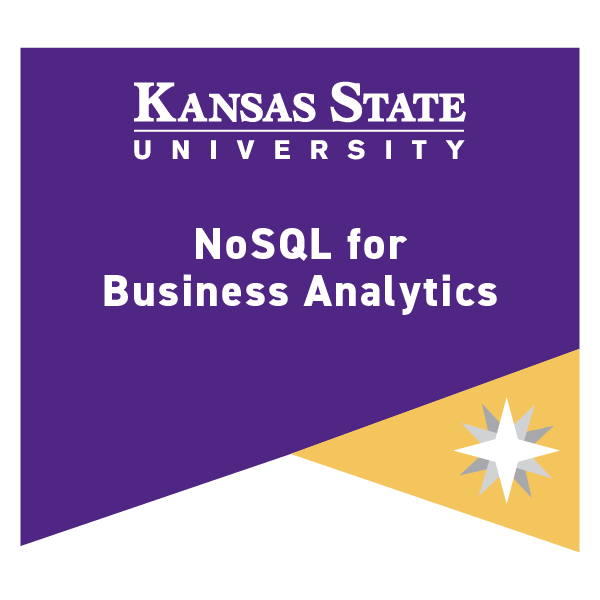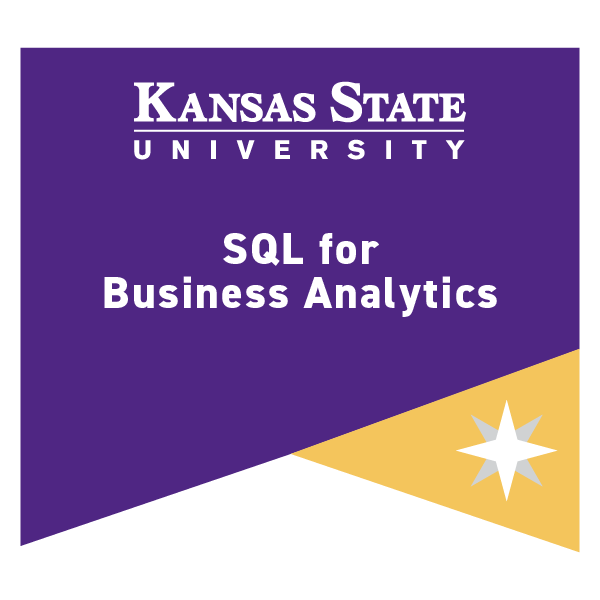|
|||||||||||||||||||||
 An Operating Return Approach to Creating Value I: Financial Statement AnalysisThe most common analysis metric used in business today is return on equity (ROE). While ROE is a powerful metric, it includes income and losses from both operating and nonoperating activities when, in fact, companies create value mainly through the core operations of the business. In recognition of that premise, this micro-course examines a variety of topics and concepts aimed at evaluating the profitability of a business from an operating perspective. |
|
 An Operating Return Approach to Creating Value II: Business ValuationThis course builds on Financial Statement Analysis: An Operating Return Approach by focusing on modeling the value drivers of a business so that managers and business owners can obtain the market value of their business. |
|
 Formulating an Innovation StrategyRegistration is not available at this time.This microcredential will explore the methods and tools organizational leaders can use to formulate an innovation strategy. We start with the organization's strategic direction and intent and how innovation can help the organization reach its goals. Then we will explore ways firms evaluate which innovation projects to pursue, how to decide if the innovation should be pursued in collaboration with others, and how it might be protected by intellectual property. |
|
 Fundamentals of Cloud Computing for BusinessThe Fundamentals of Cloud Computing for Business badge delves into the realm of cloud-based systems, shedding light on the transformative impact these technologies have on organizational computing infrastructure. This comprehensive overview equips students with a clear understanding of cloud computing, exploring its various aspects and implications for businesses. The course provides valuable insights into critical considerations such as service level agreements, elasticity, security, audits, and practical implementation issues. Furthermore, the course encompasses vital topics like automation, infrastructure as code, DevOps, orchestration, and edge computingLearning Management System: Canvas Pro |
|
 Grant Development and Management Professional CourseRegistration is not available at this time.The Grant Development and Management microcredential provides practical training in advanced grant proposal development for professionals, students, and community organizations. Learners gain hands-on experience reviewing funding announcements, writing compelling need statements, developing SMART objectives, designing project and evaluation plans, and preparing draft grant proposals. The course strengthens essential skills in project planning, program design, evaluation, budgeting, and professional communication to help participants create competitive, fundable proposals across nonprofit, education, health, and community settings. The learning experience requires approximately 45 hours and integrates both technical grant development methods and durable skills essential for effective proposal writing across professional contexts. Successful completion of required assignments with instructor feedback and an overall score of 75% or higher qualifies learners to earn the microcredential and a verified digital badge. |
|
 Grant Writing BasicsGrant Writing Basics is an applied grant writing course for new and experienced practitioners who want to strengthen their ability to develop competitive grant proposals. Participants learn how to identify grant opportunities, use data to document community needs, write clear problem statements, and build strong outcomes, activities, evaluation plans, and budgets. The course emphasizes practical grant writing skills alongside durable strengths in professional communication, critical thinking, and collaboration.The learning experience requires approximately 15 hours and includes instructional modules, small-group interaction, and hands-on writing practice. Successful completion of course assignments with an overall score of 75% or higher qualifies learners to earn the microcredential and a verified digital badge. |
|
 Implementing an Innovation StrategyRegistration is not available at this time.In this microcredential, we examine the various factors organization leaders should consider when they implement their innovation strategy. Items such as organization size and structure as well as team size, composition, structure, leadership, and administration all impact the success of an innovation launch. We will also explore the best practices for improving both the effectiveness and efficiency of the new product development process and how the deployment strategy is impacted by effective timing, licensing and compatibility, pricing, distribution, and marketing strategies. |
|
 Introduction to IntrapreneurshipIn this badge, we will explore how existing organizations identify, assess, legitimize, and implement ideas and initiatives. In addition, we will investigate how organizations use the learnings from implementation to reassess the overall strategy and engage in entrepreneurial renewal. We will do an in-depth exploration of the first two intrapreneurship processes: entrepreneurial insight and idea assessment. |
|
 Lean Six Sigma Black Belt CourseThe Lean Six Sigma Black Belt focuses on mastery of Lean Six Sigma theory, strategies, and advanced tools and techniques through in-depth application and analysis. This course will enhance professional expertise needed to implement and lead complex projects and provide the skills necessary to teach and mentor others. The focus of the Black Belt course is on in-depth coverage of topics including, but not limited to: value stream mapping, advanced statistical theory, A3 management, advanced design for six sigma (DFSS), project management for large projects, coaching and mentoring teams for process improvement, organizational change management, advanced hypothesis testing, history and theory of quality, advanced lean theory and tools, implementation of LSS in an organization, and use of advanced Minitab features. |
|
 Lean Six Sigma Green Belt CourseRegistration is not available at this time.The Lean Six Sigma Green Belt course delves into the DMAIC process through in-depth information, analysis, and application of Six Sigma and Lean concepts that can be immediately applied to projects and for leading and managing process improvement teams. The course is designed to certify participants as competent in the fundamentals of the Lean Six Sigma Green Belt body of knowledge as defined by Kansas State University. |
|
 Lean Six Sigma White Belt WebinarRegistration is not available at this time.The purpose and benefits of Lean Six Sigma are presented in this two-hour webinar known as White Belt. **** CLICK HERE **** to view the upcoming opportunity and sign up. |
|
 Lean Six Sigma Yellow Belt CourseKansas State University and the College of Business Administration offer a two-day introductory Yellow Belt course as the foundation program of Lean Six Sigma and its methodologies. The main goal of the Yellow Belt course is to learn how Lean Six Sigma can be used by individuals and teams to improve customer satisfaction, reduce errors, increase efficiencies and work more effectively to solve problems. |
|
 Market Segmentation and PositioningThis course explores how to gain a competitive advantage on the basis of different customer demands so that marketers can provide effective and efficient marketing strategies and decision making. |
|
 NoSQL for Business AnalyticsIn today's data-driven business environment, there is a growing demand for professionals skilled in NoSQL databases, as businesses require flexible, scalable solutions for diverse data types. NoSQL technologies enable efficient data storage, retrieval, and reporting, making them essential for modern data architecture. Companies seek individuals who can leverage NoSQL databases to uncover insights, optimize operations, and drive strategic initiatives. This course equips professionals with the necessary skills for data analysis and management, enhancing their job market value and meeting the growing demand for data-savvy analysts. |
|
 Organizing, Visualizing and Describing Data for Financial ApplicationsRegistration is not available at this time.In this course, participants distinguish between data types and explore data structuring methods. They will use frequency distributions, contingency tables, and diverse visualization tools. Essential statistical measures like central tendency and kurtosis are covered. The course empowers learners with key skills for efficient data analysis and representation. |
|
 Research Methods in the Age of Artificial IntelligenceParticipants enrolled in this course will gain knowledge and skills in management analytics and research methods, and explore how those intersect with AI. Participants will develop and demonstrate an ability to formulate business problems correctly, select appropriate data collection methods, and prepare data for analysis. |
|
 SQL for Business AnalyticsThis course promotes knowledge of SQL and relational databases. These are essential skills for understanding the underlying data architecture of modern software applications, including sales, CRM, HR, and AI systems. Database design and management is traditionally a core MIS function. However, expertise in data architecture, design, and management can also be found in computer engineering and software engineering departments. The intended audience for this micro credential is business professionals and data analysts that want to gain basic SQL proficiency for tasks on business side. It does not cover database design based on software development perspective. |
|
 Using Financial Data to Transform Your Small BusinessThis course empowers small business owners with the tools necessary to create and analyze financial statements and budgets, which allows learners to make informed business decisions. |
|
 Winning with Sports Analytics: Performance and Game Strategic AnalysisThis course will develop and demonstrate competency in the following areas: fundamentals of sports analytics, analysis of athlete and team performance, analysis of effectiveness of game strategic and tactical decisions, and advanced analytics and AI applications in professional sports. |
|

 Cart (0)
Cart (0)